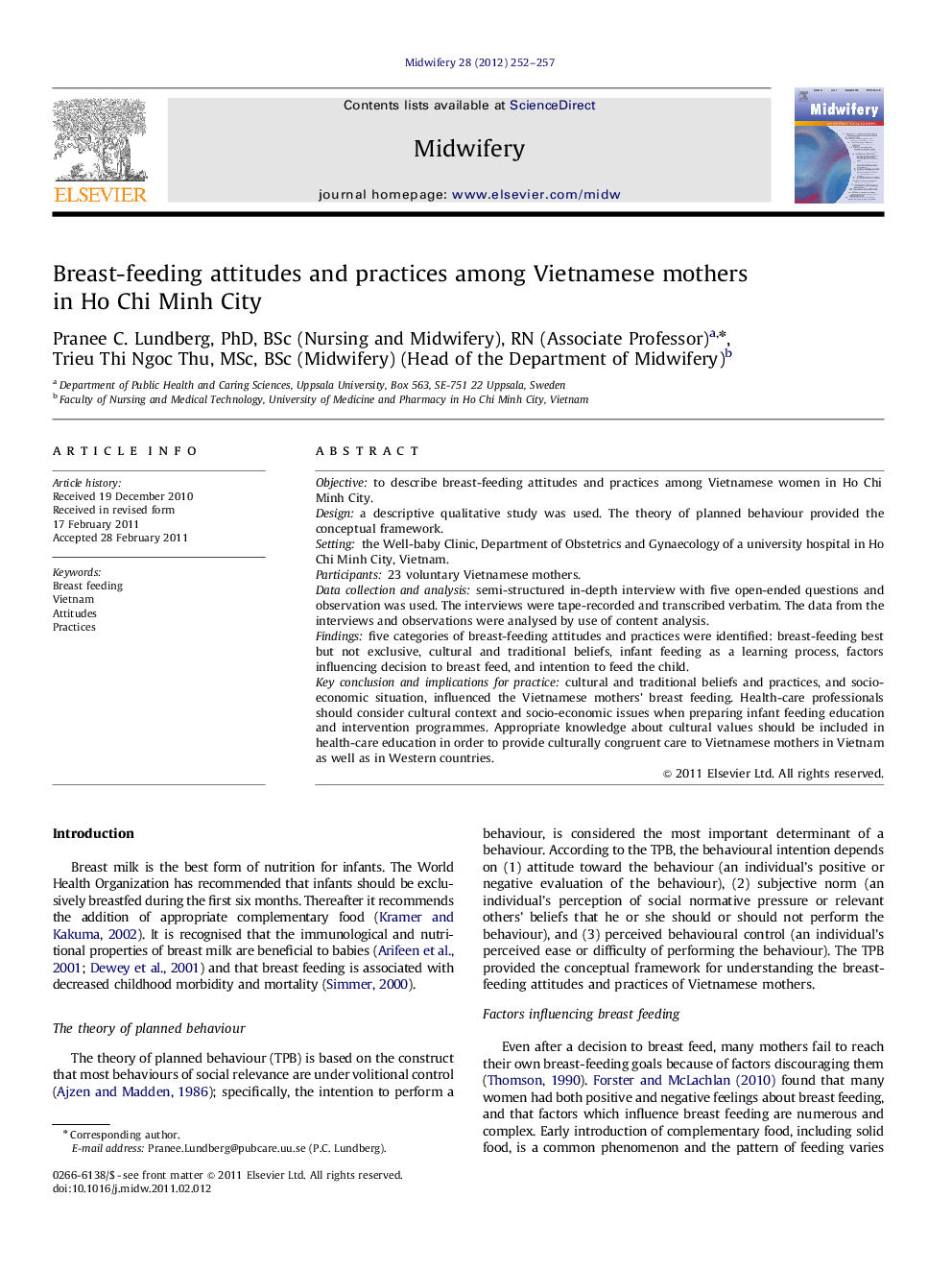| Article ID | Journal | Published Year | Pages | File Type |
|---|---|---|---|---|
| 1085233 | Midwifery | 2012 | 6 Pages |
Objectiveto describe breast-feeding attitudes and practices among Vietnamese women in Ho Chi Minh City.Designa descriptive qualitative study was used. The theory of planned behaviour provided the conceptual framework.Settingthe Well-baby Clinic, Department of Obstetrics and Gynaecology of a university hospital in Ho Chi Minh City, Vietnam.Participants23 voluntary Vietnamese mothers.Data collection and analysissemi-structured in-depth interview with five open-ended questions and observation was used. The interviews were tape-recorded and transcribed verbatim. The data from the interviews and observations were analysed by use of content analysis.Findingsfive categories of breast-feeding attitudes and practices were identified: breast-feeding best but not exclusive, cultural and traditional beliefs, infant feeding as a learning process, factors influencing decision to breast feed, and intention to feed the child.Key conclusion and implications for practicecultural and traditional beliefs and practices, and socio-economic situation, influenced the Vietnamese mothers' breast feeding. Health-care professionals should consider cultural context and socio-economic issues when preparing infant feeding education and intervention programmes. Appropriate knowledge about cultural values should be included in health-care education in order to provide culturally congruent care to Vietnamese mothers in Vietnam as well as in Western countries.
